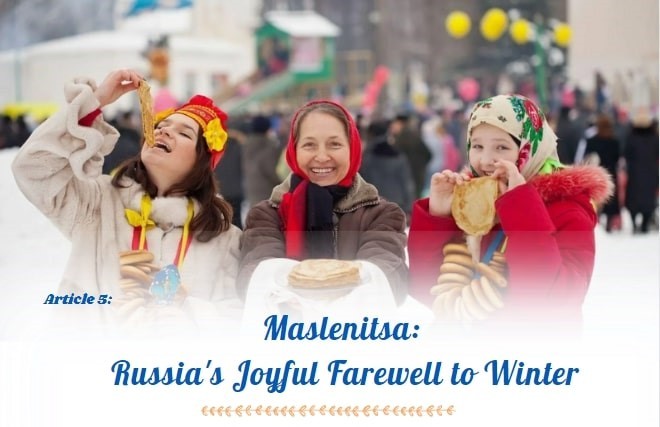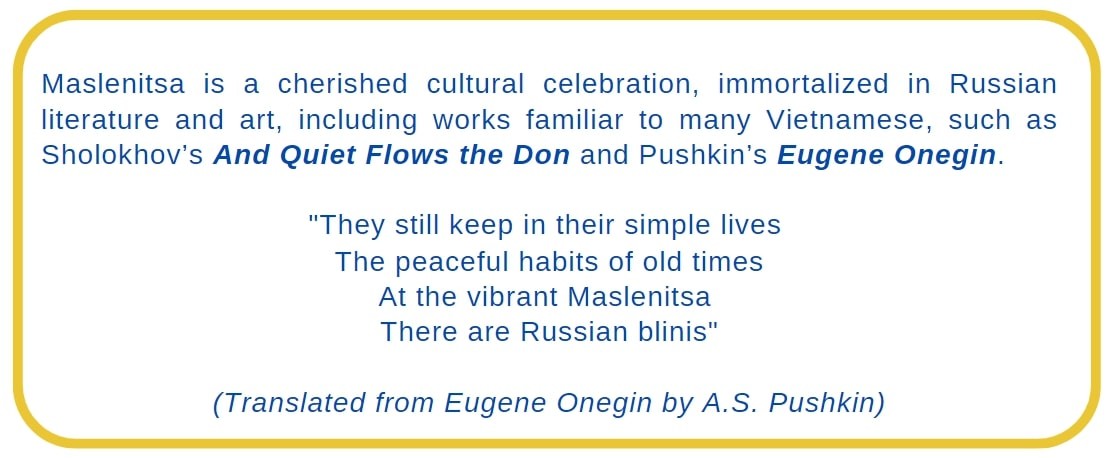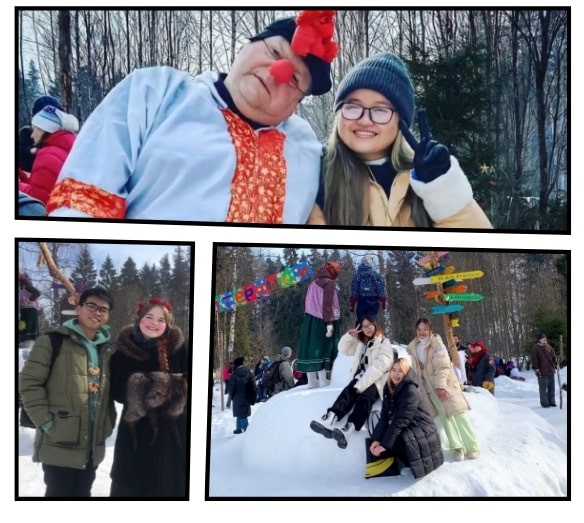Maslenitsa: Russia's Joyful Farewell to Winter
September 01, 2024 | 18:30
Farewell to Winter (Maslenitsa) is one of Russia's most vibrant and deeply rooted traditions. This Slavic festival marks the symbolic transition from winter to spring, celebrating the harmonious bond between people and nature. For many Vietnamese students who have studied in Russia, participating in Maslenitsa, especially in the scenic Kalistovo forest near Moscow, leaves an unforgettable memory of warmth, tradition, and camaraderie.
The Farewell to Winter (Maslenitsa) is one of Russia's most vibrant and deeply rooted traditions. This Slavic festival marks the symbolic transition from winter to spring, celebrating the harmonious bond between people and nature. For many Vietnamese students who have studied in Russia, participating in Maslenitsa, especially in the scenic Kalistovo forest near Moscow, leaves an unforgettable memory of warmth, tradition, and camaraderie.
|
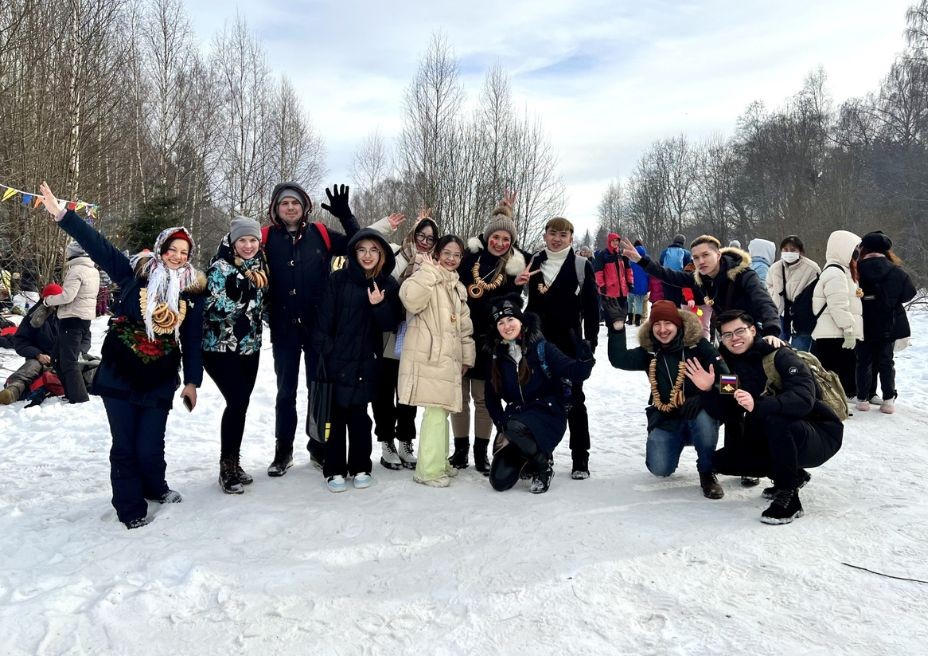
Vietnamese students pose for a photo with Russian locals at Maslenitsa. (Photo: Bach Duong)
|
|
Luc Thien Thanh, a student who participated in an internship in Russia during 2021-2022, reminisces about the magical festival. "We first learned about Maslenitsa from Professor Varvara at the A.S. Pushkin State Russian Language Institute. She explained how winter in Russia, with its piercing cold winds and sub-zero temperatures, blankets the country in thick layers of ice and snow for five long months. The Farewell to Winter festival is, therefore, a much-anticipated celebration and a time when people embrace the first warm rays of spring and prepare for the upcoming planting season."
|
| Maslenitsa, which precedes Orthodox Lent, usually falls between late February and early March on the Julian calendar. The festival sees participants dressed as fairytale characters, like the Snow Maiden and wizards, dancing and singing in a lively, exuberant atmosphere. |

Traditional dancing at Maslenitsa. (Photo: Svetlana Manukhina)
|
|
Despite its simplicity as there are no flashy lights or modern stage, Maslenitsa in the Kalistovo forest draws hundreds of people from all over, thanks to its rustic charm. Wooden seesaws, slippery poles, and snow-built mazes are just a few of the festival’s traditional games that bring joy to all ages.
The festival grounds are divided into various zones, including areas for games, cooking stations, and warming spots. Thanh fondly recalls the warm welcome from locals at the festival entrance, where participants had to sing, recite a poem, or perform a traditional dance to be admitted. Thanh and her friends sang the well-loved Russian folk song, "Antoshka": "Antoshka, let’s go plant potatoes; Antoshka, let’s play the harmonica..."
|
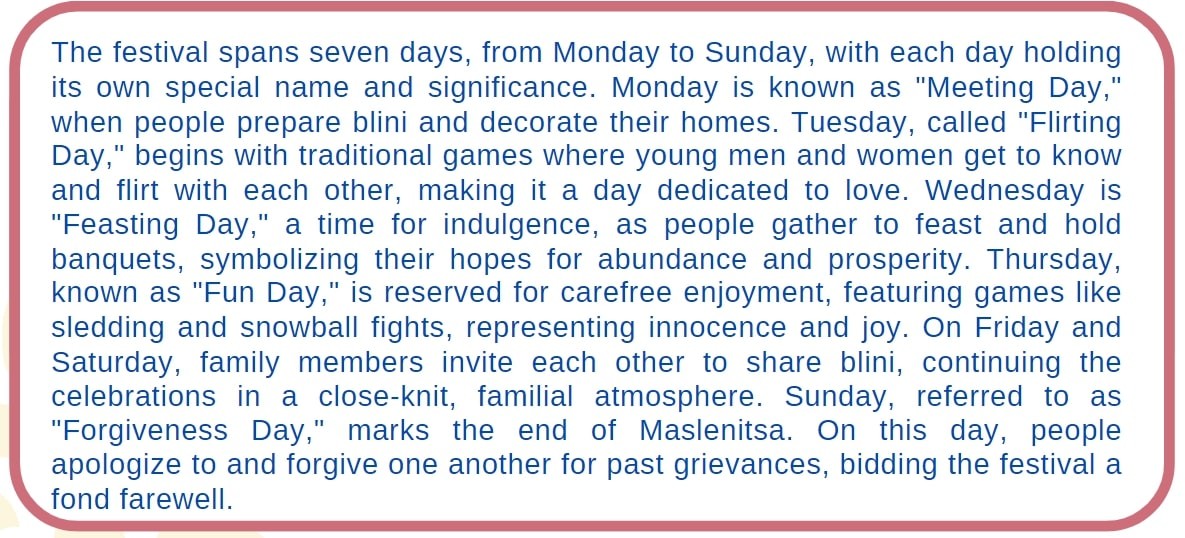 |
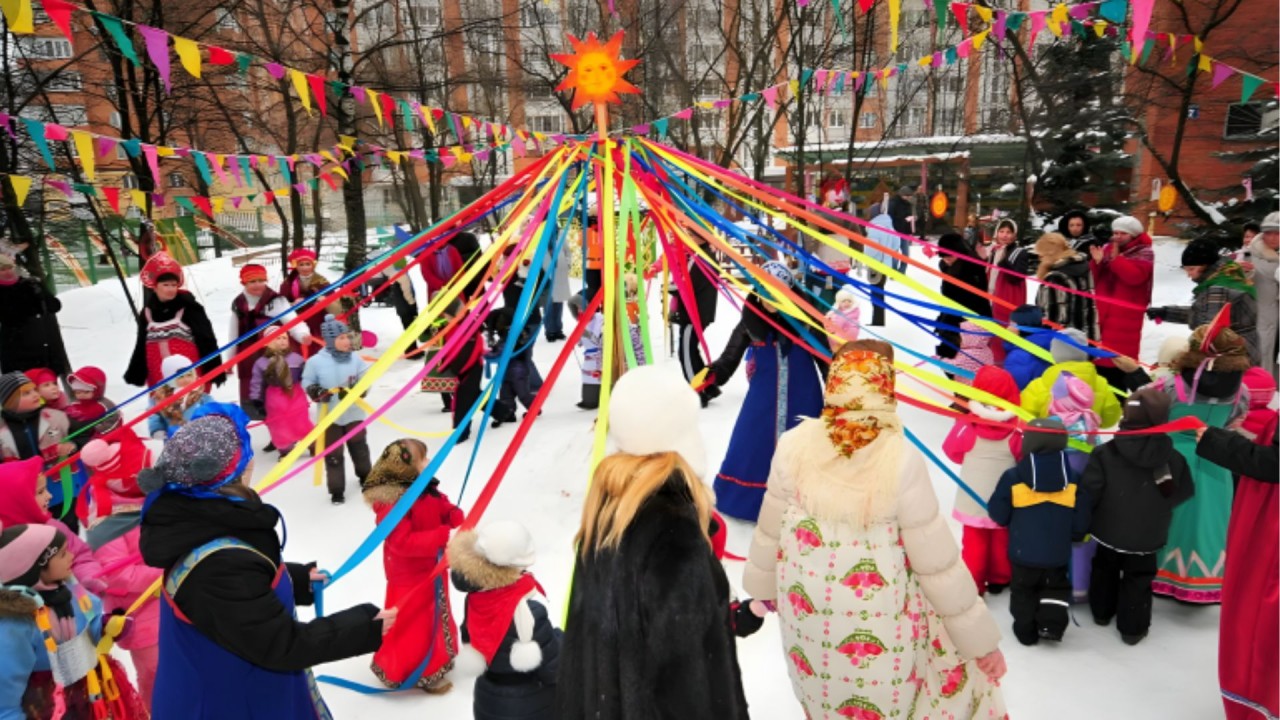 |
|
"The crowd joined in, singing along with us. When we finished, we were met with applause and smiles. It was a heartwarming moment that made us feel, despite our different nationalities, that the souls of Vietnam and Russia were united as one," recalled Thanh.
Thanh also participated in the "breaking the snow fortress" game, a Maslenitsa staple. Teams took turns trying to capture the flag atop a snow fortress while the other side defended it with snowballs.
"The games reflect the strength and resilience of the Russian people. The music, cheers, and laughter filled the air, creating memories that will last a lifetime. Engaging in cultural festivals like this gives international students a deeper understanding of Russian culture," added she.
|
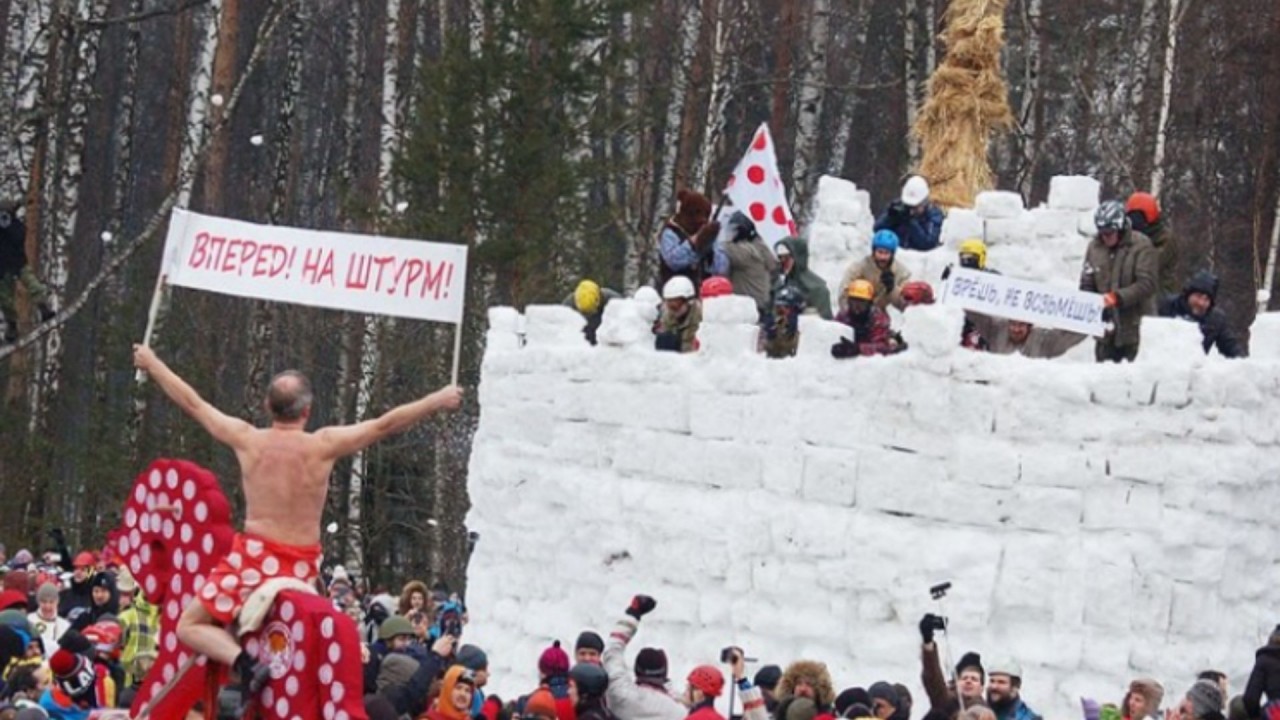
Participants engage in the "breaking the snow fortress" game. (Photo: eventsinrussia.com)
|
|
Nguyen Hoang Khang, a current student in Moscow, also felt the warmth and hospitality of the Russian people during Maslenitsa.
"We trekked ten kilometers through a forest covered in ice and snow to fully experience the authentic Maslenitsa," recalled Khang.
|
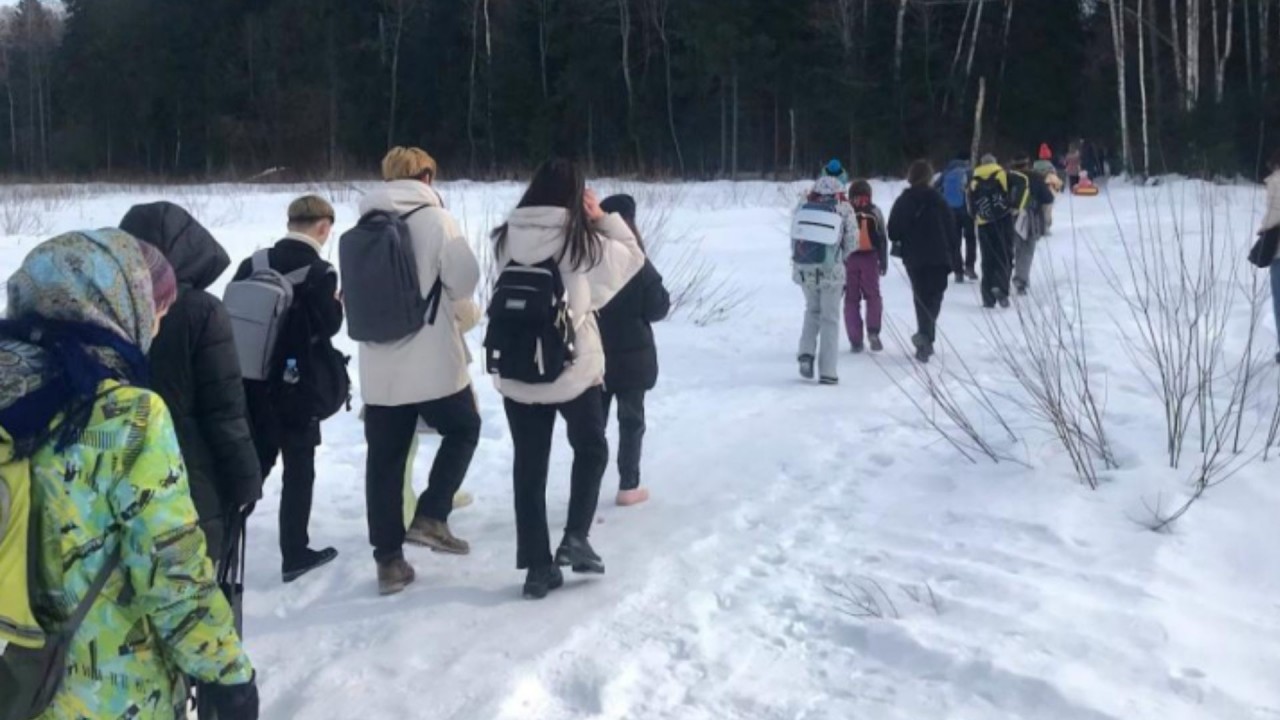
The icy path to the Maslenitsa festival. (Photo: Bach Duong)
|
|
“The ice was slippery, and we fell several times, our hands and feet turning red from the cold. But our excitement to explore Russian culture kept us going.
Along the way, Russians offered their help, showing us how to navigate the icy paths. At the festival, we made many Russian friends. We sat around the fire, grilling sausages and blini (Russian pancakes), talking about the histories of Russia and Vietnam, and competing in traditional games like snow mountain and wrestling," said Khang.
Even though they were strangers, the locals helped push the wooden swings and seesaws for Khang and his friends.
"These simple games forged genuine connections between us, bridging the cultural gap between Vietnamese and Russians," he added.
|
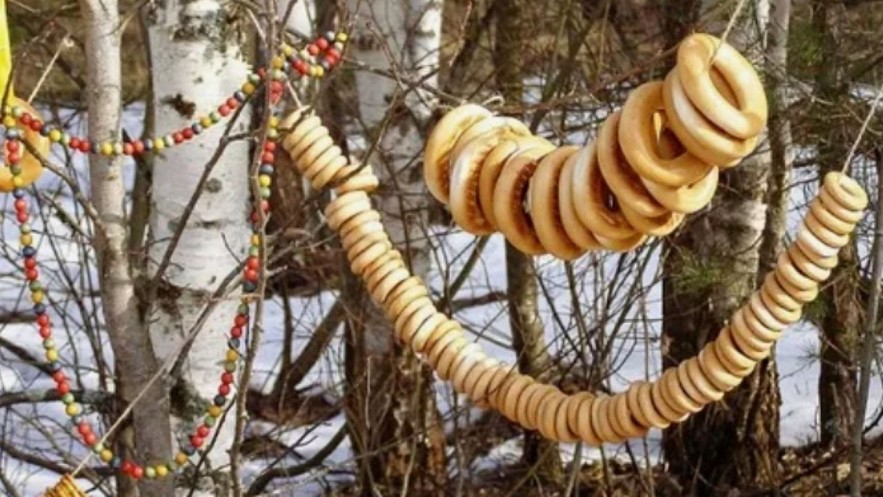
Sushki bread rings. (Photo: Bach Duong)
|
|
A unique tradition at Maslenitsa involves wearing necklaces made of sushki bread rings. After getting acquainted, people share the bread from their necklaces as a symbol of newfound friendship.
The Russians enthusiastically helped the Vietnamese students fry blini, which Khang likens to Vietnamese Tet cakes, banh chung, and banh tet. Blini, round like the spring sun, are often served hot with butter, jam, or honey.
|
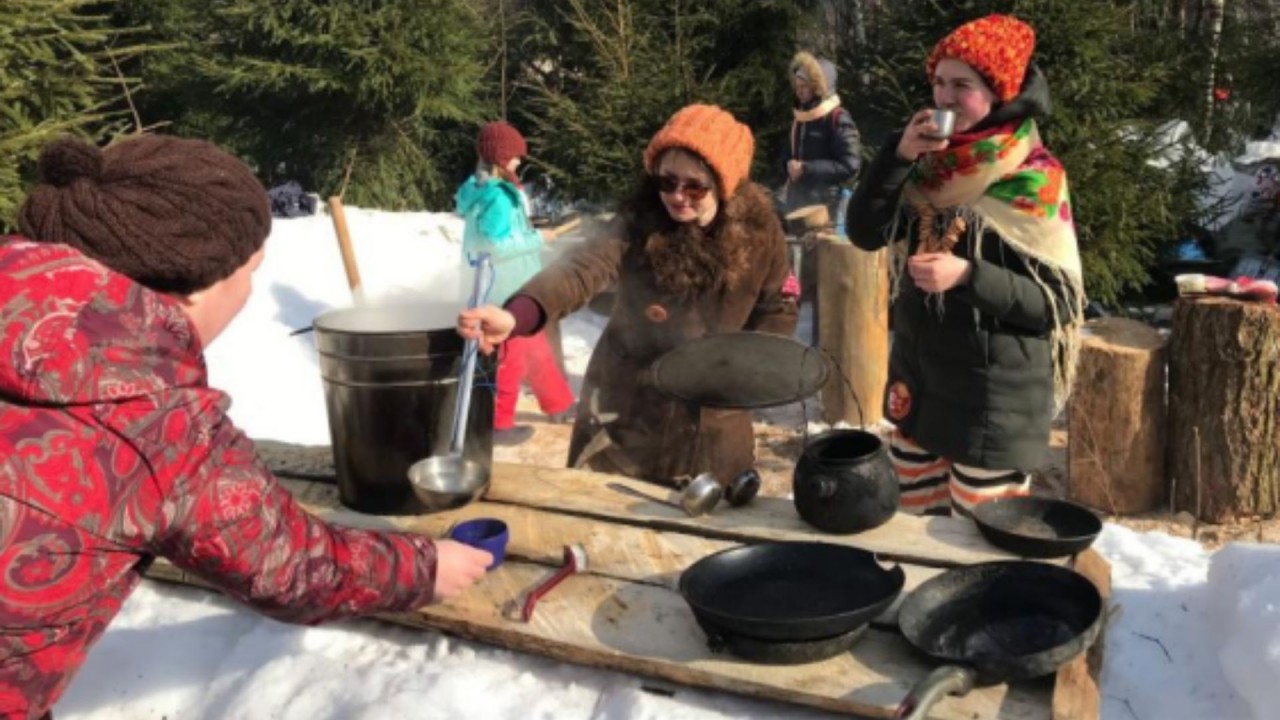
Hot water and tea ready for festival participants. (Photo: Bach Duong)
|
| As the festival draws to a close, a straw effigy, known as Chuchelo, is ceremonially burned, a symbolic farewell to winter. In Russian culture, the fire represents the earth's awakening after its long winter slumber, signaling the time for farmers to begin sowing and cultivating once more. The ashes of Chuchelo are spread across fields to bless them for a bountiful harvest. |
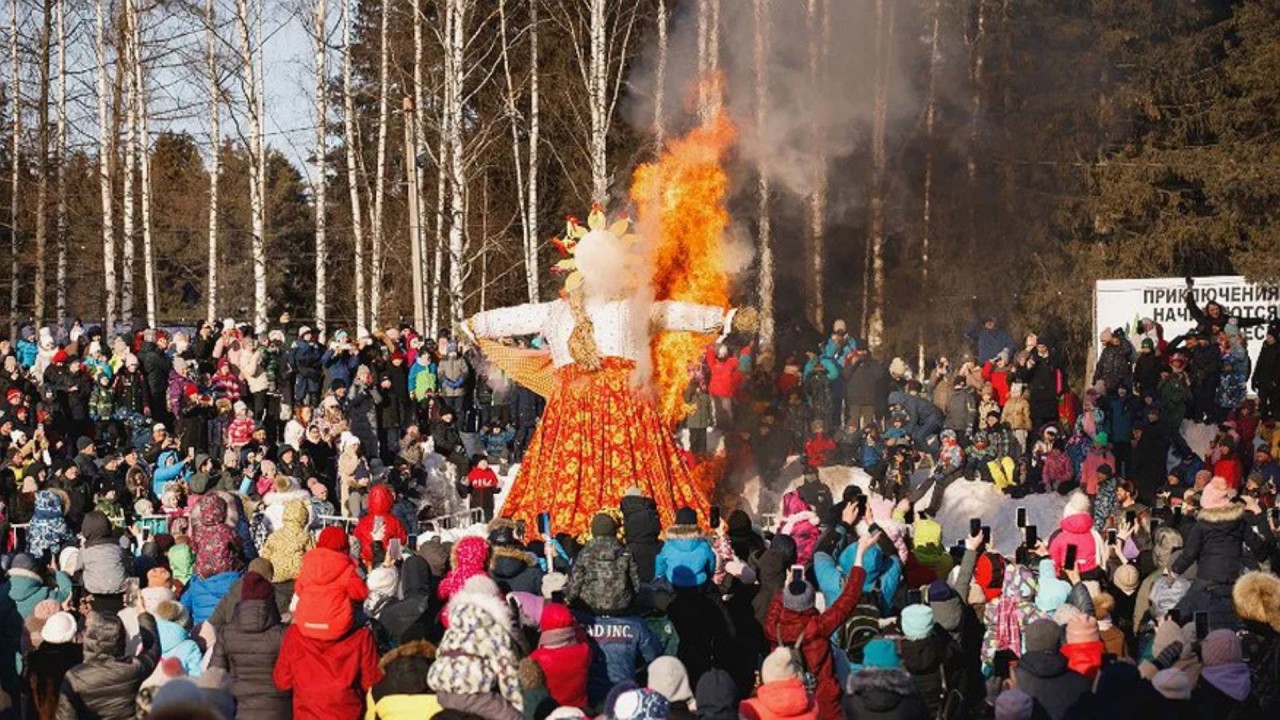
Burning the straw effigy. (Photo: gorodkirov.ru)
|
| Maslenitsa remains a national festival in Russia and other Slavic countries. Celebrated widely across Russia, Belarus, Moldova, and several CIS countries, Maslenitsa today is often held in city squares, where adults and children alike can join in making mini straw effigies. |
Phuong Nguyen
